“Don't give me this sexist bull****. All right, I'm just saying women aren't meant to fight. They have tiny hollow bones.”- Sensei Johnny Lawrence (Cobra Kai).
Well, as a self-professed feminist, I have to agree he kind of has a point.
Not about women not being meant to fight, because female fighters have gained popularity in recent years, encouraging even more women to join traditionally male-dominated arenas. But as someone who’s played contact sports with both men and women, colliding with a male body is a lot different from doing so with a female one. Whenever I happened to train in a mixed group and would somehow crash into some of the guys, I did feel like I had tiny, hollow bones; and they had normal, human ones.
One of the trickier nuances or subjects when it comes to the topic of gender equality would be women’s sports. Why women’s sports don’t earn as much, why it doesn’t generate the same hype, why it doesn’t demand the same respect… And while discrimination could be a factor, a lot of other aspects provide impact as well. The amount of resources that goes into that sport, the size of the market which translates to the money that can be made from it, and well, the most basic which is the physiology of men and women just being different from each other. These indicators impact could what the athlete could become exceptional at, and whether or not it was popular enough for them to make a living from it.
While society in this day and age shouldn’t be able to discourage us from what we want to do, either, it could still be a daunting experience.
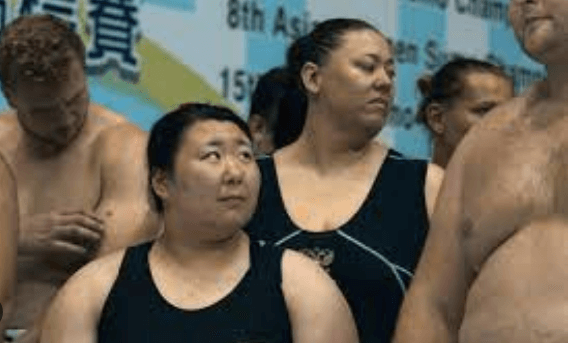
That look when you feel like you don't belong. Image: The Daily Beast
“Little Miss Sumo” is a 19-minute documentary on Hiyori Kon, 20-year-old Japanese sumo wrestling prodigy, showing on Netflix.
While I watched the documentary for the sport element, I didn’t know that Kon would be mentioning gender issues, which I should have known given the sport she was into. Perhaps the discussion about women in sports may be inseparable from the discourse on gender equity.
“In the old days, only men practiced sumo. Because of this tradition, some people don't like us.”
- Hiyori Kon, “Little Miss Sumo”
Tradition is a huge factor in this inequity. A woman can have the same determination and even talent but if fans of that sport are not used to watching women in it, the fanbase could be very exclusive, even hostile, ridiculing the women who participate.
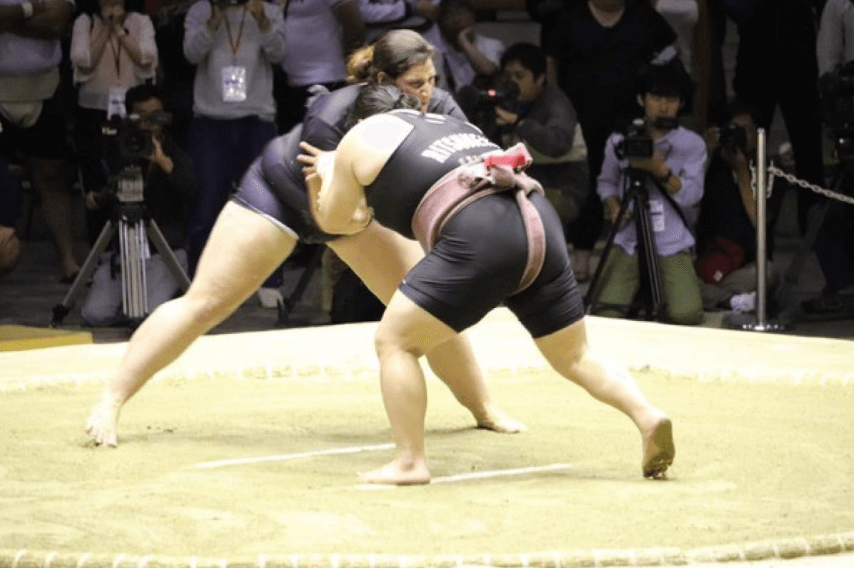
Image: Netflix
“I study gender theory. We learned about many women fighting gender issues all over the world. But there weren't many Japanese women. Japanese people don't ask for radical change. The ‘ideal’ woman is modest and walks 3 steps behind the man. We even have a term for this. She's not supposed to be visible.” - Hiyori Kon, “Little Miss Sumo”
Culture adds another layer of complexity to the fight for equity, because there are deeply rooted cultural norms, which for better or worse, largely mold a nation’s identity.
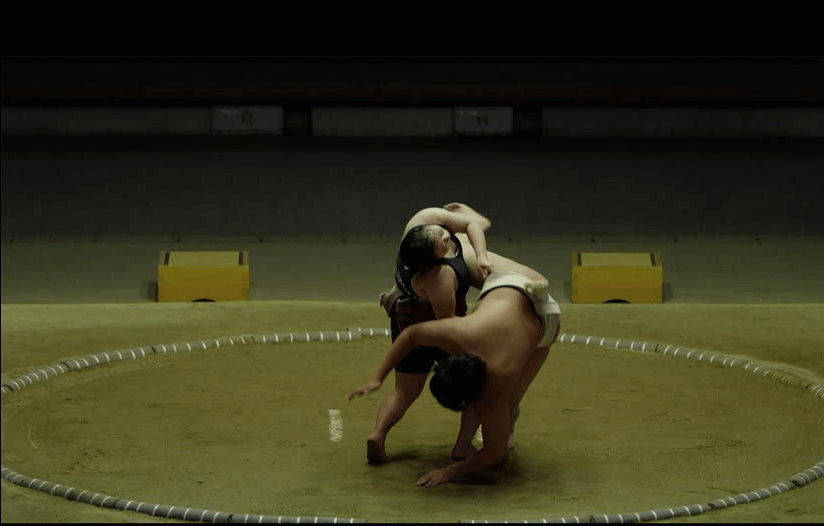
Image: IMDB/Little Miss Sumo
“I believe that as a result of my hard work, women's sumo will stop facing discrimination. I will continue to strive for it, with that belief. If we each raise our voice, while also spreading sumo across the world, then I believe there will be more people willing to fight gender inequality with us.”
- Hiyori Kon, “Little Miss Sumo”
Even if gender equity, especially in sports, is a bit of a way from being achieved, it shouldn’t stop women from pursuing their passion, even if it happens to be a male-dominated field. A gender-equitable world would not just allow but support women participating in any kind of sport.
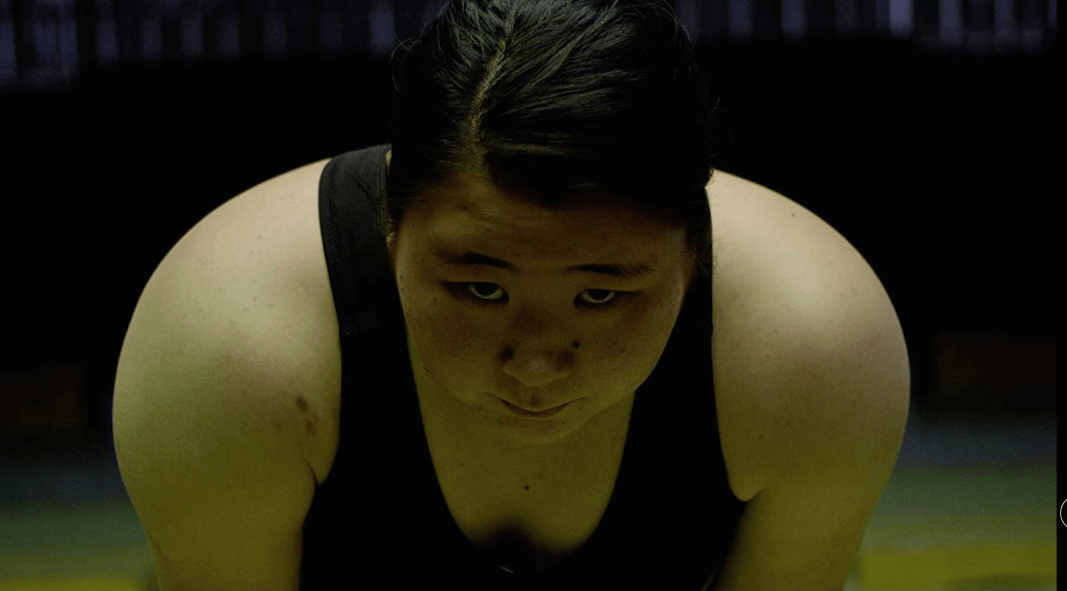
Image: IMDB/Little Miss Sumo
It’s not just Hiyori Kon.
Countless other women fight the uphill battle for glory and respect in their respective sports.
Ronda Rousey was one of the very few who made a mark on women’s MMA– surpassing even the men in win record, number of title defenses, and quick finishes. She even famously claimed to make more money per second than Floyd Mayweather -- which is a huge deal considering that the gender pay gap is projected to close in roughly 2 centuries.
When asked about how he felt being the “first person to ever win 2 Olympic golds in tennis,” Andy Murray went viral for reminding a reporter that while it was true for the singles events, Venus and Serena Williams had won 4 golds each in doubles.
You could argue, well, they still competed against other women. Which should be the case because of the different physiology.
But Katie Ledecky shocked people at a 400m freestyle prelim event by equaling the time of the most decorated Olympian Michael Phelps at the same event.
Lisa Leslie and Candace Parker have dunked in the WNBA, and while not an extraordinary feat in the men's league, it’s still not something all professional basketball players could do. Certainly not something most fans can do.
In 1962, media ridiculed Mercedes-Benz for sending two women to race against male drivers through 4,624 kilometers (more than 2,800 miles) of death-defying roads in the grueling Argentine Turismo Grand Prix. But Ewy Rosqvist and her co-driver Ursula Wirth swept all 6 stages and clocked in at 34:51:03 hours, more than three hours ahead of the 2nd placer, and of all of the men.
The 2 Scandinavian blondes had set a new record at 127kph, breaking the existing record by almost 6kph.
Maybe they seem few and far between, however, their achievements and those of other women in other sports, are like constant drops on a rock.
And you know what they say.
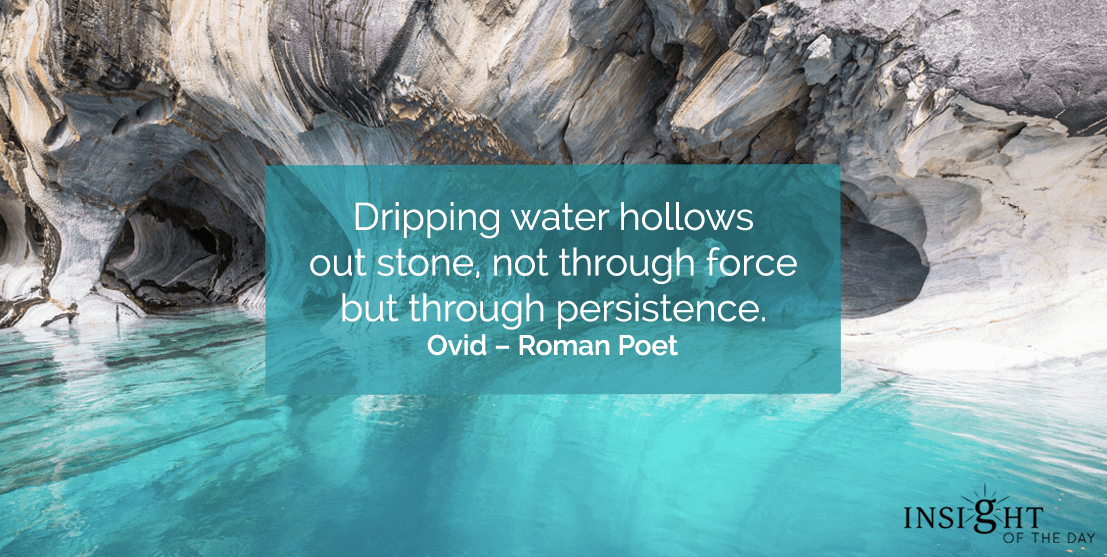
Image: insightoftheday.com
Who knows? Maybe someday, that glass ceiling in sports, like all the other ones, could eventually be smashed once and for all.
Happy Women’s History Month!

0 comments